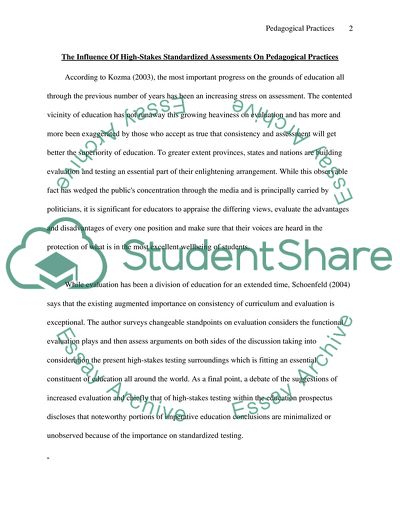Cite this document
(The Influence of High-Stakes Standardized Assessments on Pedagogical Term Paper, n.d.)
The Influence of High-Stakes Standardized Assessments on Pedagogical Term Paper. Retrieved from https://studentshare.org/education/1705277-the-influence-of-high-stakes-standardized-assessments-on-pedagogical-practices
The Influence of High-Stakes Standardized Assessments on Pedagogical Term Paper. Retrieved from https://studentshare.org/education/1705277-the-influence-of-high-stakes-standardized-assessments-on-pedagogical-practices
(The Influence of High-Stakes Standardized Assessments on Pedagogical Term Paper)
The Influence of High-Stakes Standardized Assessments on Pedagogical Term Paper. https://studentshare.org/education/1705277-the-influence-of-high-stakes-standardized-assessments-on-pedagogical-practices.
The Influence of High-Stakes Standardized Assessments on Pedagogical Term Paper. https://studentshare.org/education/1705277-the-influence-of-high-stakes-standardized-assessments-on-pedagogical-practices.
“The Influence of High-Stakes Standardized Assessments on Pedagogical Term Paper”, n.d. https://studentshare.org/education/1705277-the-influence-of-high-stakes-standardized-assessments-on-pedagogical-practices.


